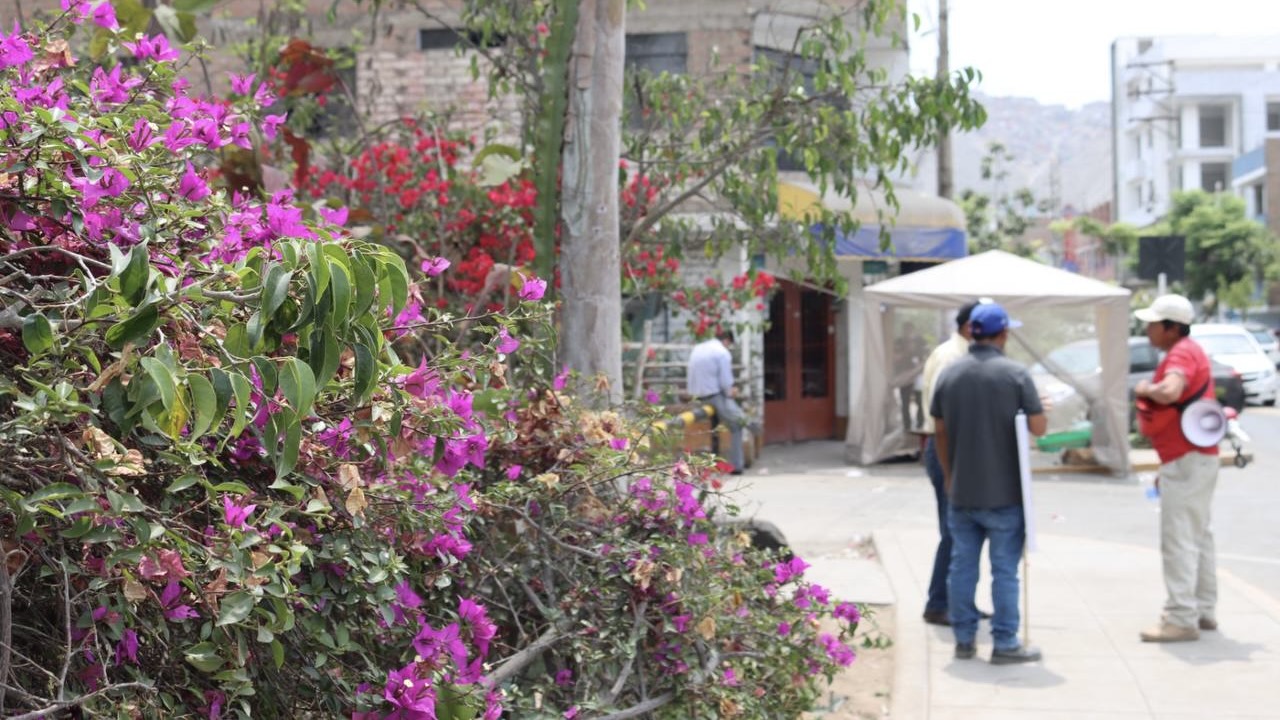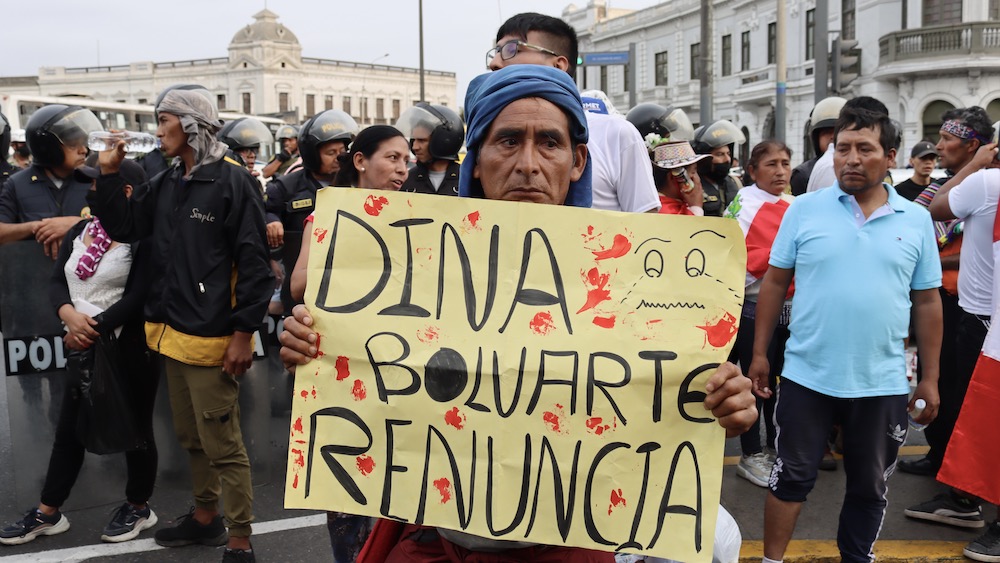“You’re probably wondering who paid me to be here,” a man in his 40s, from the southern Andean province of Ica, said to me. “Well, no one paid me to be here. We are doing this because our hearts are with the homeland, because I want my Peru to change, because a government that was trying to do this was unjustly overthrown.”
Luis Alberto (name changed) is one of hundreds of Peruvians who traveled to Peru’s capital, leaving behind his home and his employment, to protest the coup against Pedro Castillo as well as his detention, which took place on December 7, 2022.
We met outside the Barbadillo Prison in the eastern part of Lima. This prison is where constitutional president Pedro Castillo is being held in pre-trial detention, which was just extended to 18 months by a judge on Thursday, December 15. Luis Alberto, alongside several others, are part of a self-organized group maintaining a vigil outside the prison—day and night—so that “those corrupt people don’t try to plant anything, or harm [Castillo] in any way,” as they told me. And above all, their group wants to “show our support for our president.” Around one hundred of the original participants shifted to the camp in Manco Capac Plaza, in the center of the city, in order to maintain constant pressure on Congress amid the upcoming debates on elections and the political crisis.
Throughout the day, people pass by the vigil to drop off bottles of water, crates of oranges, packages of crackers, or simply to chat and ask what is happening and what they can do.

“Everything we have here has been given to us by the people themselves,” Alberto told me. “The first night we slept on the grass, and the next day neighbors brought us mattresses, clothing, food…this is the solidarity that this government [of Pedro Castillo] has taught us. To share with our brothers the bread that we have, with those that do not.”
Those present engage in discussions about the Peruvian political system, the “bought” judiciary, the “lying” media, and the “corrupt” right-wing Congress, constantly sharing updates from Whatsapp and Facebook on the debates in Congress, the mobilizations occurring across the country, and the repression faced by those on the streets. They also share stories about their own struggles to survive in the country, for land, dignified employment, and quality education. They take turns chanting on the megaphone, and playing broadcasts from independent media on the situation.

“We must be clear. This is political persecution because the right-wing didn’t win and they did not accept their electoral defeat,” Estela Cornejo Cusihuaman, who is also participating in the vigil, told me.
“We are here so that democracy is respected and our president is freed, because he is not being detained. He has been kidnapped. This is political persecution whether you like it or not. Here there is no point in covering up the sun with a finger,” Cornejo Cusihuaman added.
The fourth power: the media
Much of the conversation amongst those outside Barbadillo is about the role of the media in creating the conditions for the coup and for the criminalization of the anti-coup protests. When I introduced myself as a journalist, many became immediately uneasy. “But not mainstream, national press, right? All they do is manipulate our words and tell lies,” one participant asked.
Cornejo Cusihuaman said that during the year and six months that Castillo’s government was in power, it was “all attacks”.
“[In the media they] would say, ‘Pedro Castillo is ignorant, a terrorist, a communist, a teacher who knows nothing, a peasant who doesn’t know how to govern.’ They would say whether or not he was wearing his sombrero, if we went to the bathroom with his sombrero. All this paid-off press was just focused on criticizing, and harassing him,” she condemned.
Luis Alberto added that the press employed a racist treatment towards Castillo and his government, dissecting the minute details about the background, qualifications, and experience of Castillo and the members of his various cabinets.
For many, the right-wing’s treatment of Castillo is a mirror for how ordinary, working class people in the country are treated, especially those that fight for change.

During the two weeks of mass protests against the coup, mainstream Peruvian press has called protesters “vandals”, “criminals”, “terrorists”, “drug-traffickers”, they have published unverified reports alleging that protesters have been using weapons and have links to criminal groups, and always emphasize the disruption to daily life caused by the protests.
This has occurred alongside the brutal and violent repression of these mass anti-coup protests. According to human rights organizations in the country, at least 26 people have been killed due to the police repression, eight of them below the age of 20. According to the National Human Rights Coordinator (CCDDHH), the National Police and Armed Forces have used prohibited munition such as metal pellets, glass pellets, and live bullets in addition to “shooting tear gas bombs directly at protesters bodies” and indiscriminately shooting at protesters with lethal weapons.
In addition, across the country, nearly 200 protesters have been detained and dozens of offices and houses of political leaders, social movements, and organizations, many of which have been hosting protesters from outside the cities, have been raided by police, accompanied by the mainstream media who often “writes the sentence before the trial.”
Yet, despite repression, stigmatization, and criminalization, the people of Peru are determined to stay in the streets to express their indignation against the coup, the de facto government of Dina Boluarte, the human rights violations against protesters, and the imprisonment of Castillo. Cornejo Cusihuaman emphasized, “This is the reaction of the people, because all of the attacks that they have made against Pedro Castillo, who has been democratically elected, have been against the people.
“These attacks are not just against Pedro, but against the people.”





